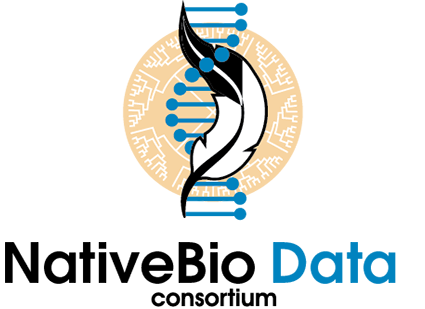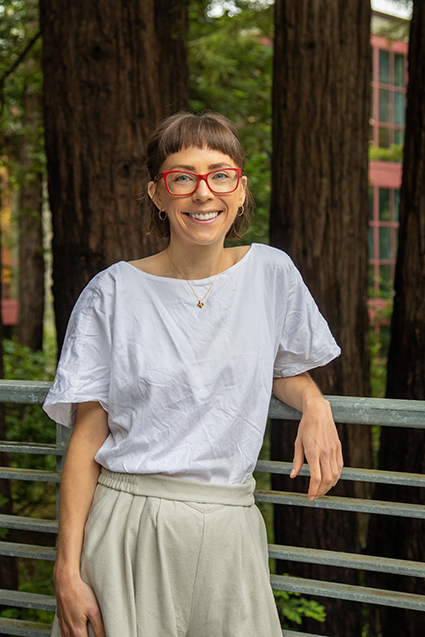Campus News
Indigenous scientists awarded $9M to establish the first RADx Tribal data repository that upholds Indigenous data sovereignty
The National Institutes of Health announced funding for an Indigenous Data Repository led by Native scientists to help improve health in tribal communities and for all Indigenous Peoples.


Today, the National Institutes of Health (NIH) announced funding for an Indigenous Data Repository led by Native scientists to help improve health in tribal communities and for all Indigenous Peoples. After a competitive review, Stanford University in collaboration with the Native BioData Consortium (NativeBio) was awarded $9 million to fund an Indigenous-led effort called “Rapid Acceleration of Diagnostics Tribal Data Repository (RADx TDR): Data for Indigenous Implementations, Interventions, and Innovations (D4I).” UC Santa Cruz (UCSC) is a sub-awardee of this grant.
The NativeBio is the first Indigenous-led, 501(c)(3) nonprofit biodata repository and research institution in the geographic borders and legal jurisdiction of a Tribal Nation, the Cheyenne River Sioux Reservation. NativeBio will work with five scholars at premier research universities and at 10 health sites using American Indian and Alaskan Native (AI/AN) public health data to help design ethical approaches to data sharing, data analysis, implementation, policy, and legal frameworks. The goal is to more immediately serve Tribal populations following the disproportional impact of COVID-19 in Indigenous communities.
The award is a landmark decision in support of Indigenous Peoples.
“In recognition that science development projects are increasingly done as public-private partnerships, we recommend that formal and informal standards include and adhere to 21st century precepts of equity, restorative justice, and benefit sharing, acknowledging the 532 years of injustice done to Native Americans and their inability to correct the problem on their own,” said Joseph Yracheta (Pūrepecha), executive director of NativeBio.
The RADx Tribal Data Repository comes in response to the NIH initiative, called Rapid Acceleration of Diagnostics for Underserved Populations (RADx®-UP), launched during the COVID-19 pandemic to “speed innovation in the development, commercialization, and implementation of technologies for COVID-19 testing.” RADx-UP enabled a targeted public health response to COVID-19 and helped to identify and address disparities in COVID-19 diagnostic testing and effectiveness among underserved and vulnerable populations. AI/AN communities acutely felt the devastating consequences of COVID-19, partly due to the increased prevalence of underlying chronic conditions caused by systemic neglect and underfunding of tribal health services.
“Though apparent, the true extent of COVID-19 disparities among Indigenous Peoples is likely underestimated,” Yracheta said. “This is mostly because of underreporting in the absence of a unified, Indigenous-led data resource to facilitate data collection, interagency cooperation, guide COVID-19 research, and subsequent implementations.”
The full RADX Tribal Data Repository team includes Stanford University as the prime awardee and project administrator and Native Bio as the project leader. The project will be guided by NativeBio consortium members from UC Santa Cruz, the University of Wisconsin-Madison, The Ohio State University, Arizona State University, and the University of Washington-Seattle.
UCSC Genomics Institute Assistant Researcher Ann Mc Cartney will work alongside the Indigenous leaders on this project.
Working alongside the principal investigators and advisors from Tribal communities, Mc Cartney will use her expertise in genomics data management and ethics to help to develop a Indigenous Data Sovereignty framework to guide culturally responsive access to, and use of, Tribal data. The team will strive to safeguard and respect the sovereignty and diversity of participating Tribes, facilitate responsible, ethical, and legal data transfer, and ensure that the full scientific potential of the data can be realized.
“Establishing the TDR at the NBDC is a transformative change toward building a more just and equitable future for scientific research in the United States,” Mc Cartney said. “As an Indigenous-governed repository built upon Indigenous ethical frameworks, the TDR provides a safe home for Tribal data. A home that is responsive and accountable to Indian Country. A home that upholds Tribal rights and values such as respect, trust, transparency, accountability, integrity and sustainability across all of its practices, processes and policies. The TDR is exciting — it will provide a space that facilitates Indigenous innovation and creativity and set a precedent for Tribal data management and sharing moving forward. It is one concrete institutional action taken by the NIH to build a more diverse, inclusive and equitable scientific enterprise, providing one small step toward the ultimate liberation of both Indigenous data and science and achieving Indigenous Data Sovereignty.”
Almost half of the RADx Tribal Data Repository university teams are led by Indigenous faculty scientists, including Krystal Tsosie (Diné –Navajo) and Matt Anderson (Eastern Band of Cherokee descent.) Tsosie is a NativeBio cofounder and Assistant Professor at Arizona State University.
“We started NativeBio with a very simple premise, that research on Indigenous Peoples’ samples should be led by Indigenous community members and Indigenous scientists. So, ‘for us, by us’ has been our motto,” Tsosie said. “Who is better than community members to drive researcher questions and to understand the data? Sometimes outsiders fail to understand other factors that contribute to disparities and health inequities outside the research samples.”
NativeBio is an Indigenous and independent 501 (C)(3) non-profit data repository and research institute founded in 2018 in Eagle Butte, South Dakota on the Cheyenne River Sioux Reservation. NativeBio is the first Indigenous genomic biorepository led by Natives and located in a sovereign American Indian Nation.